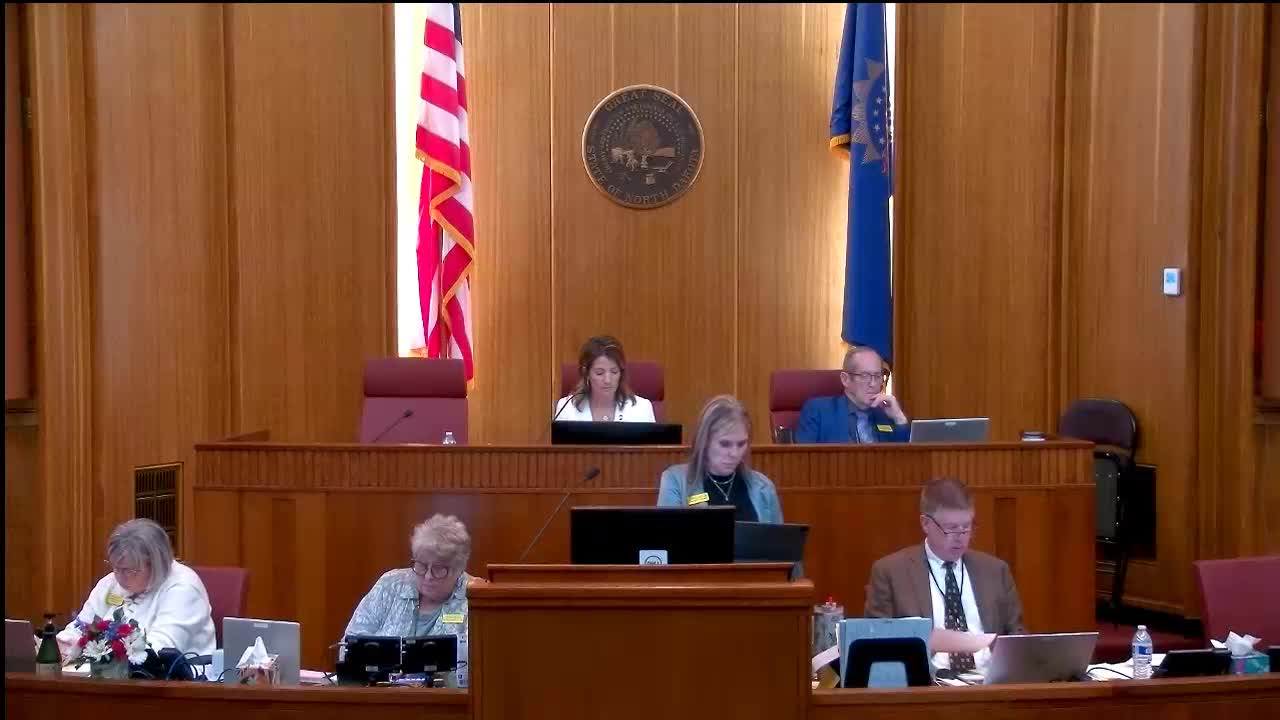Senate approves wide-ranging boards-and-commissions bill after debate over scope and process
Get AI-powered insights, summaries, and transcripts
Subscribe
Summary
Senate Bill 2308, a 33-page measure requested by the governor that moves, reassigns or repeals multiple statutory boards and commissions and creates a governor’s board‑review task force, passed the Senate 30–15 after floor debate over hog‑housing sections into a study and several failed procedural amendments.
Senator Roars, carrying Senate Bill 2308, described the measure as a governor‑requested package that reorganizes multiple state boards and commissions, moves some duties to executive agencies and creates a board‑review task force in the governor’s office.
"This bill is requested by the governor with the aim to refocus our efforts in state government to be consumer driven," Senator Roars said on the floor while explaining the bill’s scope and the sections that move duties to departments such as the Department of Environmental Quality, Department of Water Resources, and Information Technology (IT).
Why it matters: the bill dissolves, consolidates or reassigns the statutory duties of multiple advisory boards, commissions and technical committees, aims to reduce duplication and requires a task force to recommend which boards can be combined or eliminated. Sponsors argue the change will reduce overhead and administrative burden; critics said some boards are necessary to preserve federal funding, stakeholder voice and program-specific expertise.
Key changes explained on the floor - Transfer of the State Longitudinal Data System (SLEDS) oversight from the Department of Public Instruction to the IT department. - Moving the on‑site wastewater recycling technical guide duties to the Department of Environmental Quality while other water‑well responsibilities transfer to the Department of Water Resources. - Creation of a governor’s Board Review Task Force (seven legislative voting members and six non‑voting university representatives) to study funding and formula issues for higher education (non‑voting university appointees to be chosen by the higher ed board). - Repeal or reassignment of roughly 17 boards and committees listed on the bill’s repeal list (for example, the On-site Wastewater Recycling Technical Committee and certain advisory councils), with some functions absorbed by state agencies.
Floor debate and failed floor amendment A floor amendment (a "hog‑house" amendment) that would have converted the initial sections of the bill into a legislative management study and effectively delayed structural changes was offered and rejected. Senator Lee, Senator Davison and others supported the study approach; Senator Roars urged rejection of the hog‑house because he said the task force exists to spur action and avoid a fourth interim study. The verification roll call on the floor amendment was 10 ayes and 35 nays; the amendment failed.
Stakeholder concerns raised on the floor Several senators objected that dissolving some boards could jeopardize federal matching funds or reduce the voice of service recipients and industry stakeholders. For example, legislators on the floor said some advisory councils supply expertise and lived‑experience perspective that cannot be easily replaced by agency staff. Senator Roars acknowledged drafting and implementation work remained and that parts of the bill would require follow-up to avoid unintended losses of federal funds.
Action and final passage The Senate committee on State and Local Government recommended a due pass. After floor debate and failed amendments, final passage on Senate Bill 2308 was recorded at 30 ayes, 15 nays, 2 absent/not voting; the bill passed the Senate.
Ending: Sponsors described the bill as an attempt to decrease government footprint and increase efficiency; opponents urged caution to preserve boards that carry program‑specific expertise or that are necessary to secure federal funds. The bill will be transmitted to the House for further consideration.
